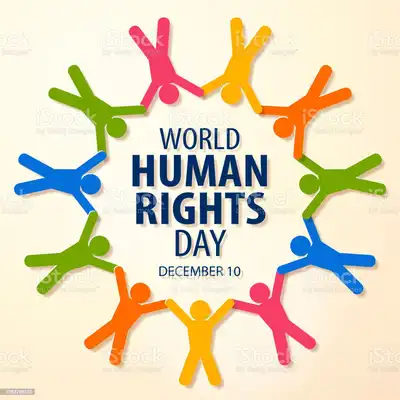Why Do We Celebrate Human Rights Day In South Africa?

South Africa observes Human Rights Day on March 21 every year to remember the Sharpeville Massacre of 1960. Human Rights Day pays thanks to all those who fought and gave their lives in the struggle for freedom by honoring the struggle for a democratic South Africa.
History of Human Rights Day in South Africa
One of the most significant national holidays in South Africa is Human Rights Day. In 1994, South Africa held its first democratic elections, and Nelson Mandela, who had just been elected president, proclaimed March 21 to be Human Rights Day. The Sharpeville Massacre was a catastrophe that changed the course of South Africa’s history. Human Rights Day highlights the everyday individuals who heroically challenged the apartheid regime and battled for their basic rights. The 21st of March serves as a reminder for South Africans to stand up in harmony and consistently declare their human rights.
The Sharpeville Massacre, The “Dompas,” And The Pass Laws
Segregation was made legal in South Africa in 1948 when the Nationalist Party took power there by executing a number of laws that gave them control over the movement of people of color. After the Native Laws Amendment Act of 1952 went into effect, no black person may move from a rural to an urban location without a local authority’s permission or “pass.” The pass had a photo, birthplace information, employment history, and information on run-ins with the law. The pass book was jokingly referred to as the “dompas,” which is Afrikaans for “stupid pass.”
- How to Withdraw From Paypal in South Africa?
- How to Sue Someone in South Africa?
- How Much Is a Liquor License in South Africa?
- How Long Does A Criminal Record Last In South Africa?
- How Is Women’s Day Celebrated In South Africa
- How Effective Is E-Commerce In South Africa?
- Who Started Amapiano In South Africa?
The PAC Congress
The Pan Africanist Congress (PAC) organized a nonviolent campaign on March 21, 1960, to collect women, men, and children in Sharpeville without their passes and present themselves for arrest. In opposition to the pass laws, about 10,000 people rallied outside a police station in the Sharpeville Township. Despite the fact that the protest was peaceful, police still opened fire on the gathering, killing 69 people and injured 180 more. The bulk of the victims were shot in the back as they tried to flee the scene. A few days later, the Apartheid government proclaimed a State of Emergency and outlawed both the PAC and African National Congress (ANC). The Sharpeville tragedy sparked widespread protests across the nation, but they were violently put down. Thousands of regular citizens were detained and hurt by police during this time, yet the underground anti-apartheid campaign persisted.
The Sharpeville Massacre would be the name given to this atrocity in history. The 21st of March will eventually come to be known as Human Rights Day.



